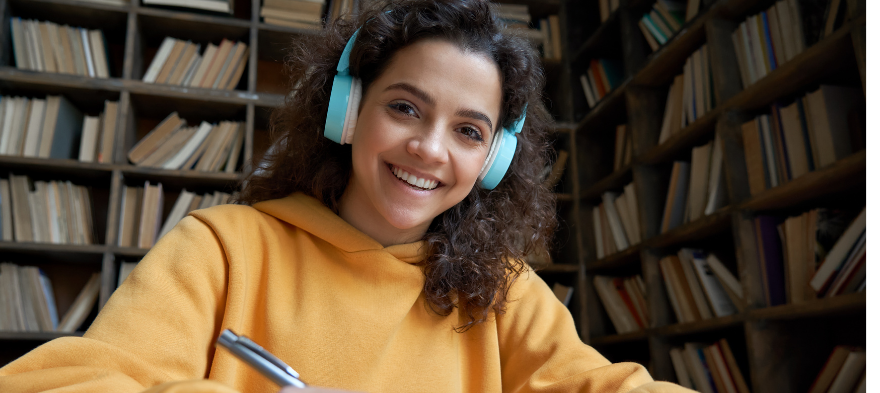
In the winter and spring of 2021, as the year of remote and hybrid learning continued, I started to notice a drop in attendance, particularly amongst my top-achieving students. Students have told me they’ve overslept but when I told them to set an alarm, they said that the idea of getting out of bed was too much for them—not because they were lazy, but because they were experiencing depression-like symptoms. Some of my students were missing my class because they were in virtual therapy sessions. In fact, around 15% of the 60 students in my two eighth grade math classes—9 or 10 kids—are seeing a therapist regularly to deal with school-related anxiety issues. That is a worrisome number.
I know that this anxiety is exacerbated for them by repeatedly hearing and reading reports of “learning loss” in the news and on social media. A simple Google search of the term “coronavirus learning loss” brings a list of 410,000 scholarly articles, many under the theme “how to close the gap caused by pandemic learning.” My 13- and 14-year-old students are internalizing the harmful narrative that they are behind.
My eighth graders, many of whom will be first-generation college students, are deeply worried that because of this unique learning year, they will no longer be able to get into good colleges, get good jobs, and provide for their families. As a teacher, I know that this cannot be further from the truth. I know how hard we are all working to ensure that my students are learning at the same level as the non-pandemic learners. And yet, I have recently had conversations with four of my students about how depressed they are about letting their families down because they have a gap in their knowledge. No matter what their report card says, these students watch the news and believe that they are “behind.”
Telling students that they are “behind” and have “gaps” is a misnomer and huge disservice to them and their strive for excellence. The students that I teach this year are different and are learning differently than the students I taught in the 2018-2019 school year. However, among their peers, my students are all performing at the same level. [pullquote position="right"]When I read that a student is behind, my first question is, behind whom?[/pullquote] As I look at my 60 Zoom squares, I see my learners mastering complex skills, such as how to solve a system of equations by graphing with a computer program. By contrast, my previous cohorts could only solve a system of equations by graphing on paper.
The term learning loss is deficit-based and implies that students are lacking in something. Instead, we should be using asset-based language. I believe that [pullquote]we should be talking a lot less about ‘learning loss’ and a lot more talking about the learning leaps my students have taken over this past year.[/pullquote] They have shown technological mastery that I never thought possible.
When we started the year, I assumed I would never see student work unless they took a picture of it, but together, my students and I have figured out a way to complete eighth grade mathematics at a comparable level to the paper-pencil method. I have watched them take selfies of themselves on their Chromebooks and use a computer program to make it look as though they were creating a pencil sketch for art. My students have been able to adapt and grow in ways that will only strengthen their likelihood of success in an ever-advancing technological world. They are taking great leaps in their education due to the COVID-19 pandemic; they aren’t losing anything.
[pullquote]No 13- or 14-year-old-child should ever feel like they are “behind” because of a murky standard.[/pullquote] Let’s make sure we’re using the right language and making the right comparisons. The COVID-19 pandemic has given us the opportunity to rethink education, particularly regarding what we mean by the term “mastery.”
What is it that signifies that an eighth grader is ready for high school? For me, it’s a firm grasp on solving algebraic equations and graphing lines; a desire to be an active member of the community; and a thirst for learning and success. If these skills can be mastered, I know that my students will be successful. So, let’s stop acting as though students are “lacking” and let’s talk about “leaping.” Our children are listening and we owe it to them to celebrate their work instead of disparaging what they’ve accomplished.
Krista Wilson is a seventh and eighth grade math teacher at ACERO Charter Schools-SPC Daniel Zizumbo Campus. She is a 2020-21 Teach Plus Illinois Senior Policy Fellow in Chicago, Illinois.
The fight for educational equity has never been just about schools. The real North Star for this work is providing opportunities for each child to thrive into adulthood. This means that our advocacy...
Your donation will support the work we do at brightbeam to shine a light on the voices who challenge decision makers to provide the learning opportunities all children need to thrive.
Ed Post is the flagship website platform of brightbeam, a 501(c3) network of education activists and influencers demanding a better education and a brighter future for every child.
© 2020–2024 brightbeam. All rights reserved.